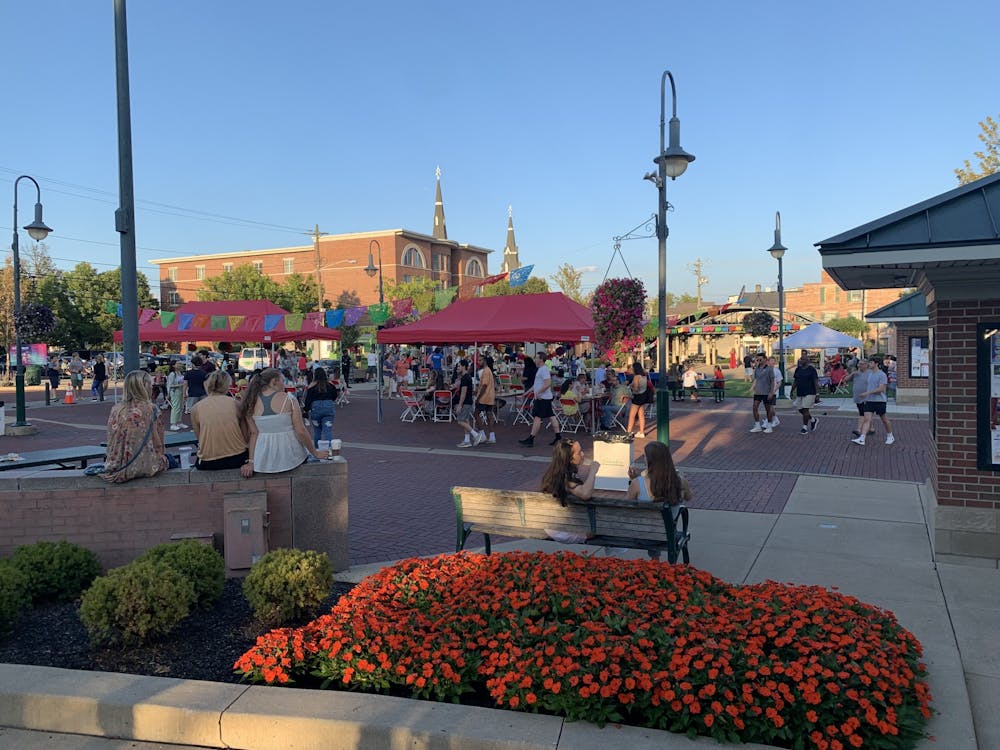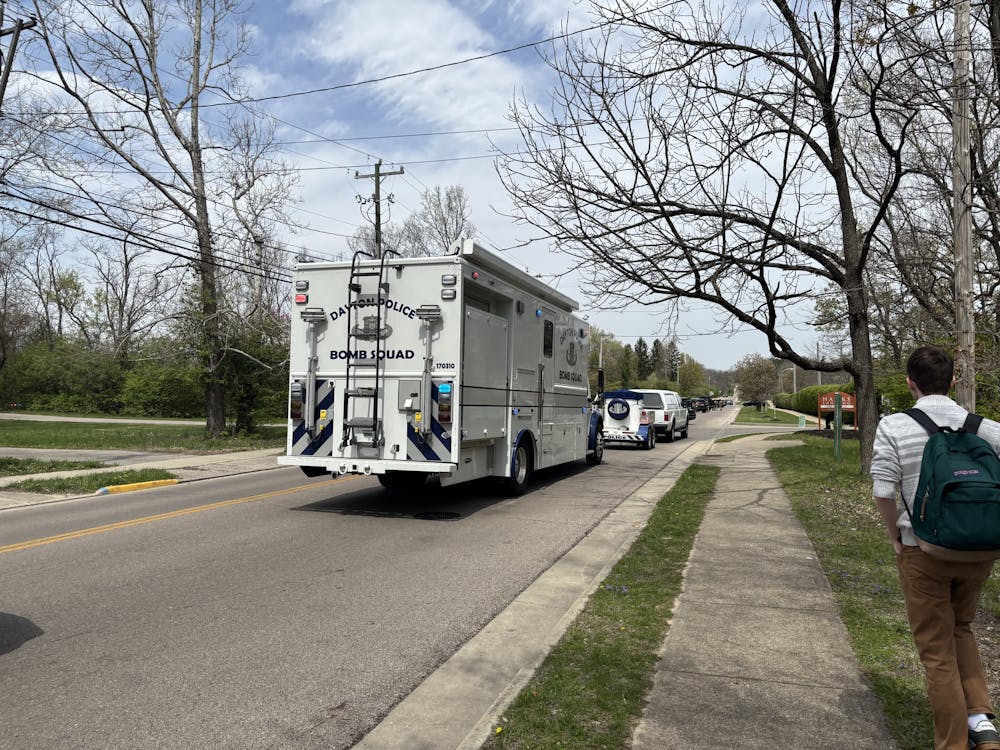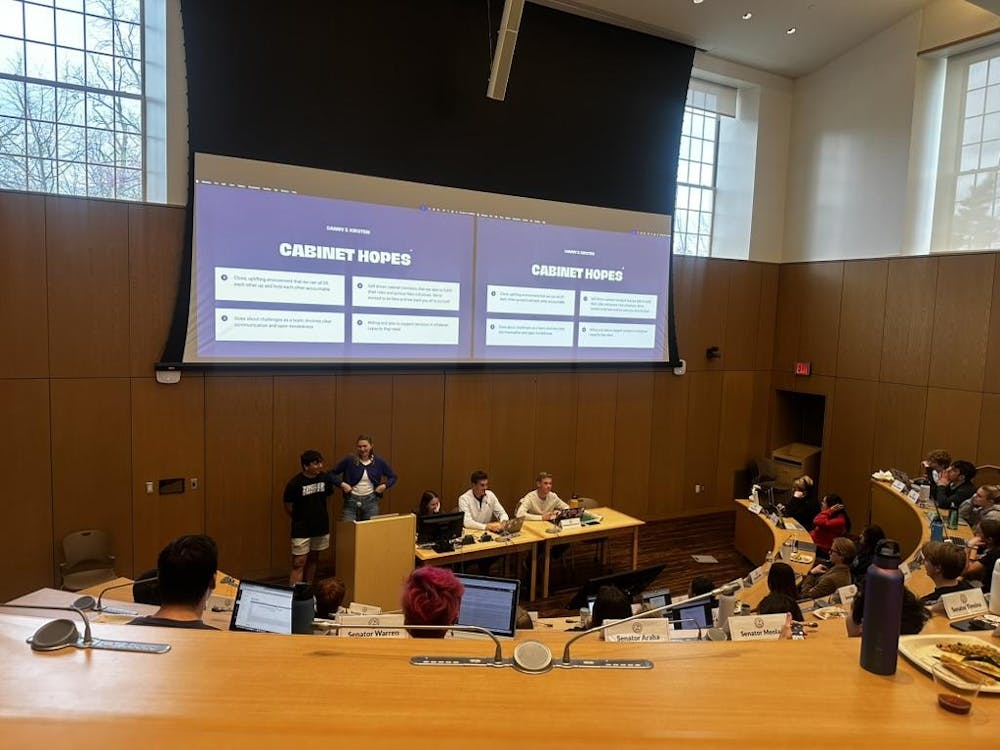Miami University’s 18th annual Latin American and Caribbean Unidiversity Festival made its 2021 debut on Friday, Sept. 17 in Uptown Park.
Children zipped, balloon animals in hand, between chatting adults, while Miami students pet llamas and alpacas – animals known for being native to South and Central American countries. Fearless groups and couples danced salsa in the grass like nobody was watching.
The sweet yet spicy scent of Caribbean jerk chicken permeated uptown.
And nobody seemed to mind the glaring sun and 86 degree heat.
The festival marked the beginning of Hispanic Heritage Month — which runs from Sept. 15 - Oct. 15 — in the Miami and Oxford communities. Last year, festivities were held online due to COVID-19 restrictions, but Jacqueline Rioja Velarde, associate director of the Center for American and World Cultures, said the festival came back this year in full swing.
“We wanted to provide an outlet for the community because people didn't have any space to come together,” Rioja Velarde said. “And it seems like that worked because they came, and they enjoyed, and they participated.”
In a normal year, Rioja Velarde has about nine months to plan for the festival. This year, she had nine weeks. Between food vendors dropping out due to low staffing and concerns about the safety of the community, Rioja Velarde said the design of the celebration was challenging.
Barring the challenges, though, she said the concept was simple.
“Festival means celebration,” Rioja Velarde said. “In Latin America, you have plenty of festivals because it’s your opportunity to come together as a community, and as Jaime Morales-Matto, who is the director of Son Del Caribe, was telling me that night, ‘This is the language of unity.’ There's no better language than music or arts or performing arts or food that really unite people.”
Kip Alishio, retired director of Student Counseling Services, said he’s been coming to the festival since it began in the mid-2000s, and he is always humbled to see people come together.
“Historically, there's not been that much diversity in Oxford, or at the university,” Alishio said. “So you can go weeks and weeks and weeks and think that there's very little diversity and then this happens. And you see you're wrong. There's a lot of diverse individuals and diverse communities in Oxford. That's exciting.”
Rioja Velarde boasts a collaborative platform, working with several sponsors and dozens of other groups to put on a successful program.
Enjoy what you're reading?
Signup for our newsletter
One such group is Unidos, the Latinx student organization on campus. Marianna Gay, senior speech pathology major and president of Unidos, co-hosted the event and said she appreciates the chance to share her heritage with others.
“I always look for any opportunity to showcase my culture to other people, and this is such a good, huge opportunity to have that avenue to do that,” Gay said. “And I think people really enjoyed it.”
Salma Kalim, an Oxford resident and mother of Kramer Elementary students, said her son brought her to the festival. Kalim said it’s great for the school to be encouraging students to learn more about other cultures, especially in a town like Oxford.
“That was a smart idea to talk about that in schools, because the kids really brought the parents here,” Kalim said. “So I think it’s a smart move and the kids are happy … it’s very boring [in Oxford], especially after COVID-19, so we need much more activities like this.”
The other host of the festival, junior computer science major and co-social chair of Unidos, Efraín Pérez, said it was a unique opportunity to bring together all walks of life in Oxford and the Miami community.
“Being able to showcase Latin culture and sort of welcome everybody into that and just showcase the culture also tends to bond those communities together and sort of create one overarching unity in our community,” Pérez said.
The two hosts agreed with Rioja Velarde’s sentiment that the festival succeeded in this post-2020 world.
“The goal of this festival is actually [to] try to create a space to be a sense of belonging, a sense of community and also to build a community responsibility from each other,” Rioja Velarde said. “In this case [it] is celebratory through Latinx/Hispanic communities, but really [it] affects every single [person].”
The Unidiversity Festival merely marks the beginning of Hispanic Heritage Month. Unidos and other organizations will be collaborating on various events throughout the 30 days, including university Instagram takeovers, a library game night, and a talk by LGBTQ+ and Latinx author and activist, Gabby Rivera.




